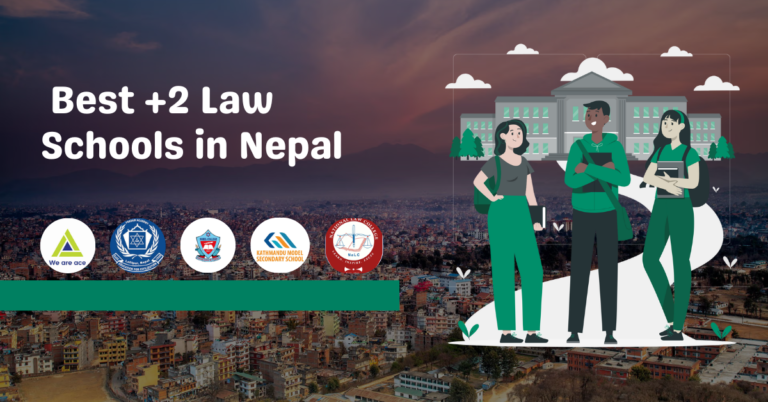Bachelor of Computer Applications (BCA) – A Complete 2025 Guide
Introduction
The Bachelor of Computer Applications (BCA) is one of Nepal’s fastest-growing undergraduate programs in the field of Information Technology. With the surge in demand for IT professionals globally—and especially in Nepal’s budding tech ecosystem—BCA has established itself as a gateway to rewarding tech careers.
Think of it as the IT world’s golden ticket. The BCA program combines the core principles of computer science with practical skills in programming, database management, software development, and more. Whether you’re dreaming of becoming a software engineer, app developer, or even launching your own tech startup, BCA is the launchpad.
In recent years, the digital wave sweeping across Nepal has further fueled the demand for computer graduates. Government initiatives, startup booms, and the entry of international tech firms have made IT education more crucial than ever. BCA not only prepares students with foundational knowledge but also grooms them for real-world tech challenges through practical assignments, internships, and project-based learning.
What makes BCA even more attractive is its accessibility. Unlike engineering degrees, it’s often more affordable and available across multiple universities including Tribhuvan University, Pokhara University, and others.
In a nutshell, if you’re passionate about tech, coding, and innovation—and you’re ready to commit to a three-to-four-year journey—then BCA could be your best bet.
History and Evolution of BCA
BCA was not always a part of Nepal’s academic mainstream. In fact, it was introduced fairly recently compared to other technical courses. Tribhuvan University, the oldest and most renowned in Nepal, launched the BCA program in 2017 under the Faculty of Humanities and Social Sciences. Its goal was clear: to meet the rising demand for IT graduates in a growing digital economy.
Before BCA became a household name, aspiring IT students had limited options like BIT, BSc CSIT, or studying abroad. BCA filled this gap by offering a more structured, practical, and industry-ready course that aligned with global tech trends.
From just a handful of colleges, BCA has now spread to more than 100 institutions across Nepal. Pokhara University and Purbanchal University soon followed TU’s lead, launching their own BCA variants, each with slight tweaks in curriculum and credit systems but with the same core objectives.
This growth wasn’t random. It mirrored Nepal’s gradual but steady embrace of digital infrastructure. As more organizations started requiring database systems, web apps, cybersecurity, and software tools, the demand for trained professionals skyrocketed. BCA rose as the bridge between education and employment in tech.
Another major factor has been the proliferation of tech startups and freelance opportunities. Even college students began earning through software development, mobile apps, and web design while still pursuing their BCA—making the course even more attractive.
Today, BCA isn’t just a degree—it’s a movement. It represents a cultural shift where young Nepalese are seeing IT not just as a job but as a career full of possibilities, both locally and internationally.
Eligibility Criteria for BCA
Wondering if you’re eligible to join the BCA program ? Let’s break it down. The good news is, it’s fairly accessible for most students from diverse academic backgrounds.
Academic Requirements
To enroll in BCA, students must have completed:
- +2/Intermediate level (Science, Management, Humanities, or Education) or equivalent from a recognized board.
- Must have secured at least a ‘D+’ grade in each subject or a minimum 2.0 GPA in aggregate.
This inclusive approach allows students from both science and non-science streams to pivot into the world of IT—an opportunity that wasn’t available a decade ago.
Other Criteria
- Applicants typically need to pass an entrance examination conducted by the respective university or college.
- Some colleges may require basic computer knowledge or mathematics background, but it’s not mandatory for all.
- There’s no strict age limit, but most applicants range from 17 to 25 years old.
One more thing to note—English proficiency is crucial since the curriculum, assignments, and projects are primarily in English. Some institutions might even conduct an interview round to test communication skills and tech aptitude.
In summary, the eligibility bar is designed to welcome aspiring techies from various educational backgrounds while ensuring they’re ready to handle the technical depth of the program.
BCA Entrance Exams
Unlike open admissions, BCA programs in Nepal usually require students to clear an entrance exam. Don’t worry, it’s not as terrifying as it sounds—it’s mostly about testing your logical thinking and basic IT aptitude.
Universities Conducting Entrance Tests
- Tribhuvan University (TU) – Faculty of Humanities & Social Sciences conducts a central entrance exam.
- Pokhara University – Entrance tests are conducted at affiliated colleges.
- Purbanchal University – Has its own testing pattern.
- Mid-Western University & Far Western University – Also hold written exams for BCA admission.
The exam pattern generally includes:
- English
- Mathematics
- General Knowledge
- Computer Awareness
- Logical Reasoning
Preparation Tips
- Focus on improving your basic math and reasoning skills.
- Brush up on computer fundamentals—MS Office, basic programming logic, and networking concepts.
- Solve mock tests available online and review past entrance questions.
- Time management is key—practice completing mock exams within 1 hour.
Passing the exam not only secures your seat but also determines which college you can attend based on your rank. Some colleges are highly competitive, so scoring well opens better academic doors.
The entrance process is usually conducted between August to October, but dates may vary by university. Always check official websites or notices from your desired institution for exact dates.
Top Universities and Colleges Offering BCA
There’s no shortage of quality institutions offering BCA. But the right one can make all the difference. Here’s a breakdown of top universities and their notable colleges:
Tribhuvan University (TU)
- Prime College, Kathmandu
- St. Xavier’s College, Maitighar
- Kathford International College
- College of Applied Business (CAB)
TU’s BCA program is among the most recognized, offering extensive practical exposure and a competitive curriculum.
Pokhara University
- Ace Institute of Management
- Pokhara College of Management
- Nobel College, Kathmandu
Known for its updated syllabus and continuous internal assessments, Pokhara University-affiliated colleges emphasize interactive learning.
Purbanchal University
- Kantipur College of Management and Information Technology (KCMIT)
- College of Information Technology & Engineering (CITE)
These colleges provide decent infrastructure and affordable fee structures.
Kathmandu University (KU)
While KU doesn’t offer a traditional BCA, it offers BSc in Computer Science, which is equivalent or even superior in some respects. Worth exploring if you’re academically inclined.
Other Private Colleges
- Softwarica College of IT and E-Commerce
- Islington College
- The British College
These colleges often partner with international universities and offer UK-affiliated programs, including BCA-equivalent courses.
Before you jump into admissions, research each college’s:
- Accreditation
- Faculty
- Lab facilities
- Past placement records
- Alumni feedback
Detailed Syllabus and Course Structure
The BCA program in Nepal is designed to strike a balance between theoretical knowledge and hands-on technical skills. Although there are minor variations across universities, most follow a structured 4-year, 8-semester system. Each semester consists of around 5 to 6 subjects, including both theory and practical components.
Year-wise Breakdown of Subjects
First Year
Semester I
| S.N. | Course Code | Course Title | Credit Hours | Lecture Hours | Tutorial Hours | Lab Hours |
|---|---|---|---|---|---|---|
| 1 | CASC101 | Computer Fundamentals and Applications | 4 | 4 | – | 4 |
| 2 | CASO102 | Society and Technology | 3 | 3 | – | – |
| 3 | CAEN103 | English I | 3 | 3 | 1 | – |
| 4 | CAMT104 | Mathematics I | 3 | 3 | 1 | 1 |
| 5 | CASC105 | Digital Logic | 3 | 3 | – | 2 |
| Total | 16 | 16 | 2 | 7 |
Semester II
| S.N. | Course Code | Course Title | Credit Hours | Lecture Hours | Tutorial Hours | Lab Hours |
|---|---|---|---|---|---|---|
| 1 | CASC151 | C Programming | 4 | 4 | 1 | 3 |
| 2 | CAAC152 | Financial Accounting | 3 | 3 | 1 | 1 |
| 3 | CAEN153 | English II | 3 | 3 | 1 | – |
| 4 | CAMT154 | Mathematics II | 3 | 3 | 1 | 1 |
| 5 | CASC155 | Microprocessor and Computer Architecture | 3 | 3 | 1 | 2 |
| Total | 16 | 16 | 5 | 7 |
Second Year
Semester III
| S.N. | Course Code | Course Title | Credit Hours | Lecture Hours | Tutorial Hours | Lab Hours |
|---|---|---|---|---|---|---|
| 1 | CACS201 | Data Structure and Algorithms | 3 | 3 | – | 3 |
| 2 | CAST202 | Probability and Statistics | 3 | 3 | 1 | 1 |
| 3 | CACS203 | System Analysis and Design | 3 | 3 | 1 | – |
| 4 | CACS204 | Object-Oriented Programming in Java | 3 | 3 | 1 | 2 |
| 5 | CACS205 | Web Technology | 3 | 3 | – | 3 |
| Total | 15 | 15 | 3 | 9 |
Semester IV
| S.N. | Course Code | Course Title | Credit Hours | Lecture Hours | Tutorial Hours | Lab Hours |
|---|---|---|---|---|---|---|
| 1 | CACS251 | Operating System | 3 | 3 | 1 | 2 |
| 2 | CACS252 | Numerical Methods | 3 | 3 | 1 | 2 |
| 3 | CACS253 | Software Engineering | 3 | 3 | 1 | – |
| 4 | CACS254 | Scripting Language | 3 | 3 | – | 3 |
| 5 | CACS255 | Database Management System | 3 | 3 | 1 | 2 |
| 6 | CAPj256 | Project I | 2 | – | – | 4 |
| Total | 17 | 15 | 4 | 13 |
Third Year
Semester V
| S.N. | Course Code | Course Title | Credit Hours | Lecture Hours | Tutorial Hours | Lab Hours |
|---|---|---|---|---|---|---|
| 1 | CACS301 | MIS and e-Business | 3 | 3 | – | 2 |
| 2 | CACS302 | DotNet Technology | 3 | 3 | – | 3 |
| 3 | CACS303 | Computer Networking | 3 | 3 | – | 2 |
| 4 | CAMG304 | Introduction to Management | 3 | 3 | 1 | – |
| 5 | CACS305 | Computer Graphics and Animation | 3 | 3 | 1 | 2 |
| Total | 15 | 15 | 2 | 9 |
Semester VI
| S.N. | Course Code | Course Title | Credit Hours | Lecture Hours | Tutorial Hours | Lab Hours |
|---|---|---|---|---|---|---|
| 1 | CACS351 | Mobile Programming | 3 | 3 | – | 3 |
| 2 | CACS352 | Distributed System | 3 | 3 | 1 | – |
| 3 | CACS353 | Applied Economics | 3 | 3 | 1 | – |
| 4 | CACS354 | Advanced Java Programming | 3 | 3 | – | 3 |
| 5 | CACS355 | Network Programming | 3 | 3 | – | 2 |
| 6 | CAPj356 | Project II | 2 | – | – | 4 |
| Total | 17 | 15 | 2 | 12 |
Fourth Year
Semester VII
| S.N. | Course Code | Course Title | Credit Hours | Lecture Hours | Tutorial Hours | Lab Hours |
|---|---|---|---|---|---|---|
| 1 | CACS401 | Cyber Law and Professional Ethics | 3 | 3 | 1 | – |
| 2 | CACS402 | Cloud Computing | 3 | 3 | – | 3 |
| 3 | CAIN403 | Internship | 3 | – | – | – |
| 4 | N/A | Elective I | 3 | 3 | – | – |
| 5 | N/A | Elective II | 3 | 3 | – | – |
| Total | 15 | 12 | 1 | 3 |
Semester VIII
| S.N. | Course Code | Course Title | Credit Hours | Lecture Hours | Tutorial Hours | Lab Hours |
|---|---|---|---|---|---|---|
| 1 | CAOR451 | Operations Research | 3 | 3 | 1 | – |
| 2 | CAPj452 | Project III | 6 | – | – | 12 |
| 3 | N/A | Elective III | 3 | 3 | – | – |
| 4 | N/A | Elective IV | 3 | 3 | – | – |
| Total | 15 | 9 | 1 | 12 |
The final year wraps up the academic journey with an internship and a major project, giving students industry exposure.
Practical Assignments and Projects
From the second semester onward, each course includes lab work and mini-projects. These are vital because they:
- Enhance coding proficiency
- Teach debugging and troubleshooting
- Develop collaboration skills through group assignments
- Improve documentation and presentation skills
Many colleges also host hackathons, tech expos, and seminars, which contribute to skill-building beyond textbooks.
In essence, the BCA syllabus is built to prepare you not just for jobs, but also to be creative problem solvers in the tech world.
Fee Structure of BCA
Let’s talk money—because planning your finances is just as important as choosing the right course.
The BCA fee structure can vary widely based on the university, the location of the college, and whether it’s a public or private institution.
Tribhuvan University (TU) Affiliated Colleges
- Public Colleges: NPR 1.5 to 2.5 lakhs (for the full 4-year program)
- Private Colleges: NPR 3 to 5 lakhs
Examples:
- Prime College: Approx. NPR 4.5 lakhs
- St. Xavier’s: Around NPR 4 lakhs
Pokhara and Purbanchal Universities
- Fees range from NPR 4 to 6 lakhs across most affiliated colleges.
- Includes tuition, practicals, lab usage, and library access.
Private Colleges with Foreign Affiliations
- Softwarica, Islington, The British College charge between NPR 8 to 15 lakhs, often offering dual or UK-affiliated degrees.
Hidden and Additional Charges
- Admission and enrollment fees
- Semester exam fees (NPR 3,000–6,000 per semester)
- Lab or project materials
- Internship placement charges in some cases
Scholarships and Financial Aid
- Many colleges offer merit-based scholarships (based on SEE/+2 results or entrance rank)
- Partial and full tuition waivers for underprivileged or marginalized students
- Discounts for early admissions or bulk payments
- External organizations like NCC Bank, Nabil Foundation, and Ujyalo Foundation also offer IT education sponsorships
When comparing colleges, always request a complete breakdown of costs before enrolling. And don’t shy away from asking about scholarships—many students miss out just because they didn’t apply.
Scope and Career Opportunities After BCA
You’ve probably heard, “There are no jobs in Nepal.” But that’s a myth, especially in the IT sector. A BCA degree opens up an ocean of possibilities—locally and globally.
Top Career Options After BCA
- Software Developer
- Web Designer / Developer
- Mobile App Developer
- Database Administrator
- Network Administrator
- System Analyst
- IT Support Engineer
- Digital Marketer (with tech edge)
- Data Analyst or AI Developer (with further upskilling)
With Nepal’s IT ecosystem growing steadily, these roles are not only in demand but also decently paid. A fresher BCA graduate can expect a salary between NPR 20,000 to NPR 45,000/month in local companies. With 2–3 years of experience or freelancing, it could rise to NPR 70,000+ or even remote opportunities earning in USD.
Freelancing and Remote Jobs
Many BCA students work as freelancers or remote developers for international clients while still studying. Platforms like Upwork, Fiverr, Toptal, and Freelancer are goldmines for coders, designers, and digital creators.
Startups and Entrepreneurship
Nepal has seen a wave of tech startups—app development firms, digital agencies, IT consultancies, etc. Many of these are founded or run by BCA graduates who wanted to be their own boss.
Government and Public Sector Jobs
- Government offices, banks, and public institutions regularly hire IT Officers or Computer Operators.
- Lok Sewa Aayog and other agencies conduct competitive exams that BCA grads are eligible for.
Bottom line? The scope is vast—provided you’re ready to learn, adapt, and keep up with evolving technologies.
Higher Studies Options After BCA
If you’re the kind who likes to keep climbing the academic ladder, BCA sets a strong foundation for higher studies. In fact, many students opt for postgraduate degrees to specialize further and boost their earning potential.
Master of Computer Applications (MCA)
- Natural continuation of BCA
- 2 years duration
- Offered in Nepal (Pokhara, Purbanchal, TU) and abroad (India, Europe, USA)
- Focused on advanced software engineering, data structures, AI, and cybersecurity
MSc in Information Technology
- Research-focused and deeper into networks, data science, and system development
- Offered by KU, TU, and some international universities
MBA in IT or General MBA
- Ideal for those who want to lead IT teams or start tech businesses
- Combines tech knowledge with managerial and business skills
Abroad Study Options
Countries like Canada, Australia, Germany, and Finland accept BCA graduates for:
- MSc IT
- MCA
- Cybersecurity
- Data Science
- Artificial Intelligence
But you’ll need to prepare for IELTS/TOEFL, get your transcripts, and sometimes provide GRE scores depending on the destination.
Short-Term Specialization Courses
If full-time study isn’t your thing, you can still upskill with certifications in:
- Python, Java, React
- Cloud Computing (AWS, Azure)
- Data Science and Machine Learning
- UI/UX Design
- Ethical Hacking
In summary, BCA doesn’t limit your growth—it unlocks endless academic and professional avenues.
BCA vs BIT vs BSc CSIT – Which One to Choose?
Here’s the ultimate confusion: Should you go for BCA, BIT, or BSc CSIT?
Let’s compare these three giants of IT education so you can make an informed decision.
| Course | Duration | Eligibility | Focus Area | Offered By |
|---|---|---|---|---|
| BCA | 4 years | +2 from any stream (D+ in all) | Software, Web, App Development | TU, PU, Private Colleges |
| BIT | 4 years | +2 Science/Management | Broader IT Systems, Networking | TU, PU |
| BSc CSIT | 4 years | +2 Science (Physics, Math mandatory) | Core Computer Science, Programming | TU, KU |
When to Choose BCA
- If you’re from Management or Humanities background
- Want to focus more on development (coding, app/web)
- Prefer a more practical and project-based learning style
When to Choose BIT
- If you want a bit of everything: hardware, networking, IT policy
- Interested in management roles in tech firms
- Like working with infrastructure and security
When to Choose BSc CSIT
- You have a strong science background
- Passionate about hardcore coding, algorithms, system design
- Considering further studies in CS abroad
Each course has its own merit. Your choice should depend on your academic strength, career goals, and learning preferences.
Internship and Placement Opportunities
A standout feature of the BCA program is its strong emphasis on real-world experience. Unlike many traditional degrees, BCA includes mandatory internships, usually in the 7th or 8th semester, designed to expose students to the dynamics of working in tech companies.
Importance of Internships
Internships are not just academic requirements—they’re your ticket to the job market. Here’s why they matter:
- Practical Exposure: You apply what you learned in class to solve real problems.
- Professional Networking: You meet industry professionals, mentors, and potential employers.
- Skill Enhancement: Learn tools and platforms that may not be part of the syllabus—like Git, Jira, Laravel, or React.
- Resume Booster: Internships significantly improve your chances of landing a job right after graduation.
Top Companies Offering Internships
- Deerwalk Inc.
- Leapfrog Technology
- CloudFactory
- Fusemachines
- EB Pearls
- Braindigit
- Verisk Nepal
- LogPoint
These companies actively seek interns from top BCA colleges. If you’re proactive and good at coding, chances are you could even secure a pre-placement offer during your internship.
How to Land Good Internships
- Maintain a good academic record.
- Work on personal or open-source projects.
- Build a solid LinkedIn profile and GitHub portfolio.
- Attend coding bootcamps, hackathons, and seminars organized by your college or tech communities.
- Don’t wait till the 7th semester—many students start interning from the 4th or 5th semester.
In conclusion, internships are not optional—they’re essential. Choose them wisely and treat them seriously. It’s the closest preview you’ll get of the real tech world.
Pros and Cons of Studying BCA
No program is perfect, and BCA is no exception. Here’s an honest look at the pros and cons of pursuing BCA:
Pros
- Accessible to All Streams: Unlike BSc CSIT, students from any +2 background can apply.
- Affordable: Most government colleges offer the program at reasonable fees.
- Practical Learning: Emphasizes hands-on projects and software development.
- High Demand: IT graduates are in demand locally and internationally.
- Freelancing & Startup Friendly: Students can earn while learning.
- Diverse Career Paths: From coding to cybersecurity to UI/UX design—the possibilities are endless.
Cons
- Quality Varies: Not all colleges provide the same level of education. Some lack good faculty and infrastructure.
- Outdated Curriculum: In certain universities, syllabi may not be updated as quickly as industry changes.
- Limited Research Exposure: Compared to technical programs like engineering or CSIT, there’s lesser focus on research and theory.
- Job Market Saturation: Due to the growing number of BCA grads, competition for jobs is increasing.
- Poor Placement in Some Colleges: Unless you’re from a top institution, finding job support might be challenging.
The bottom line? BCA is an excellent option—but only if you pick the right college and take ownership of your learning journey.
How to Choose the Right College for BCA?
Choosing the right college is arguably more important than choosing the course. Here’s a checklist to help you filter through the options:
1. Accreditation and Affiliation
- Ensure the college is affiliated with a recognized university like TU, PU, or Purbanchal.
- Accreditation ensures quality standards and eligibility for further studies.
2. Faculty and Teaching Style
- Research the qualifications of the faculty.
- Check if classes are interactive and project-based.
3. Infrastructure
- Good colleges have modern computer labs, libraries, high-speed internet, and software tools.
- Visit the campus or attend a virtual tour if possible.
4. Placement Record
- Ask about previous batch placements—where students are working and average salary packages.
- Colleges that have industry tie-ups will offer better internships and job support.
5. Alumni Network
- A strong alumni base often translates to better guidance and references for jobs or higher education.
- Look them up on LinkedIn to see where graduates are now.
6. Location
- Being in or near a tech hub like Kathmandu or Pokhara increases internship and job opportunities.
- Also affects exposure to seminars, hackathons, and tech events.
7. Affordability & Scholarships
- Compare total fees, hidden costs, and available scholarships.
- Look for colleges that give you value, not just a fancy brand name.
Don’t just rely on college websites. Visit campuses, talk to current students and alumni, and check online reviews before making your decision.
Student Life as a BCA Student
Life as a BCA student isn’t just coding and lectures—it’s a vibrant mix of creativity, teamwork, and personal growth. Here’s what to expect:
Classroom Learning
- Most classes are a mix of theory and hands-on lab sessions.
- You’ll be writing codes, debugging, preparing reports, and presenting projects regularly.
College Events and Competitions
- Hackathons: 24-hour coding events where you build software products.
- Tech Fests: Annual events that include quizzes, project demos, and exhibitions.
- Workshops: On trending tools like Python, Machine Learning, Blockchain, etc.
- Seminars: Industry experts visit to share career advice and case studies.
Clubs and Communities
- Developer Clubs (GDSC, Microsoft Learn, etc.)
- Robotics and AI Clubs
- Coding Groups and Startup Incubators
Joining such clubs helps build leadership, collaboration, and communication skills—essential in today’s job market.
Personal Projects and Freelancing
Most BCA students take on freelance gigs, internships, or build their own apps and websites by the third year. This not only builds portfolios but also helps earn money while studying.
Balancing Academics and Social Life
Yes, the course is rigorous. But with the right time management, students enjoy outings, sports, and hostel life. BCA life teaches more than just tech—it fosters independence, creativity, and resilience.
Conclusion and Final Thoughts
The BCA program in Nepal is more than just a degree—it’s a stepping stone to a dynamic and rewarding tech career. With a well-balanced curriculum, diverse career opportunities, and growing demand in both domestic and international markets, BCA is a smart choice for students passionate about technology.
Whether you dream of becoming a software developer, a cybersecurity expert, or launching your own startup, BCA provides the foundation you need. However, the true value lies not just in the degree but in how you utilize your time, choose your college, engage in practical learning, and continuously upskill.
In a digital world where every business needs tech, BCA graduates are positioned right at the center of innovation. With dedication, curiosity, and a bit of hustle—you won’t just be job-ready, you’ll be future-ready.
FAQs
1. Is BCA better than BSc CSIT or BIT ?
It depends on your academic background and career goals. BCA is more practical and accessible, while CSIT is theory-heavy and science-focused.
2. Can I study BCA in Nepal without a science background?
Yes! BCA accepts students from all +2 streams including Management, Humanities, and Education.
3. What is the average salary after completing BCA?
A fresher can expect NPR 20,000–45,000/month. With experience or remote gigs, it can increase significantly.
4. Does BCA have value internationally?
Yes. BCA grads can pursue higher studies or work abroad, especially after certifications or master’s degrees.
5. Are there scholarships available for BCA ?
Many colleges offer merit-based and need-based scholarships. Government colleges also offer subsidized fees.







